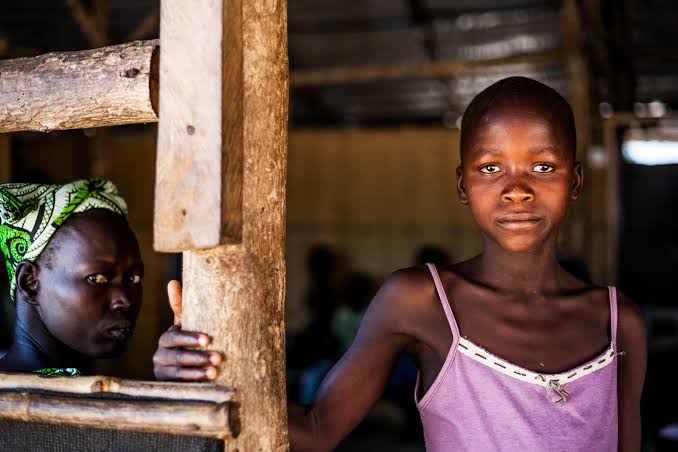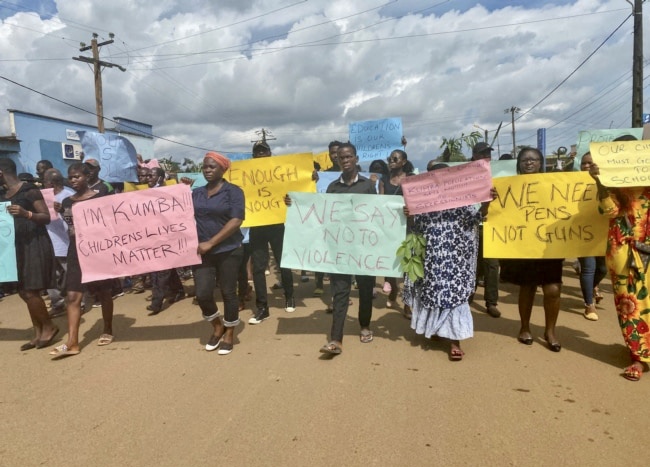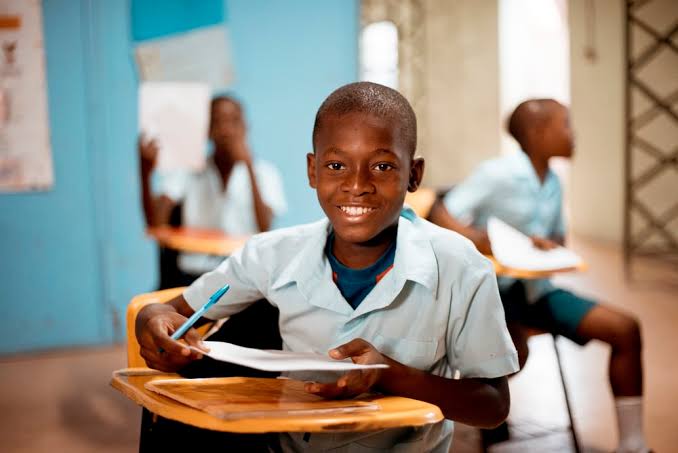
Ekeomah Atuonwu
Hundreds of displaced girls in Cameroon have demonstrated against the wars that have interfered with or ended their schooling.
Due to the separatist struggle in the country’s western regions and the terrorism of Boko Haram along the country’s borders with Nigeria and Chad, about a million Cameroonian children have missed school in recent years.
Better protection is demanded by the protestors on Tuesday so that students, particularly girls, can go back to their classes.
According to the administration, hundreds of girls protested in a number of places, including Maroua on the northern border, Buea, Kumba, and Limbe in the southwest region, Yaounde, Bamenda, and Kumbo in the northwest region.
The U.N. International Day of the Girl Child was planned to fall on the same day as the protests. The purpose of the day is to raise awareness of girls’ rights and the difficulties they encounter globally.
Emmanual Kimbi is a representative of the Yaounde-based rights organization Education for All Children. The protests on Tuesday, he claimed, were coordinated by a coalition of 20 organizations.
According to Kimbi, Cameroonian rights organizations want insurgents, Boko Haram terrorists, and government troops to spare schools and permit students to receive an education.

Handerson Quetong Kongeh is the highest ranking government official in Ngoketunjia, an administrative division in Cameroon’s Northwest region, where separatists are alleged to have shut down a number of schools since the start of the school year in September.
According to Kongeh, the government has sent out military to secure the schools. He claims that soldiers will not spare anyone who attempts to disrupt class.
Separatist organizations in Cameroon accuse the government of attacking schools and placing the blame for the attacks on the separatists; the government disputes this accusation. According to Human Rights Watch, attacks on schools are the fault of both sides.
According to the UN, the separatist crisis that started in Cameroon’s English-speaking western regions in 2016 has prevented over 750,000 children, mostly girls, from receiving an education.It says another 250,000 have been deprived of learning in the north because of the Boko Haram conflict.




